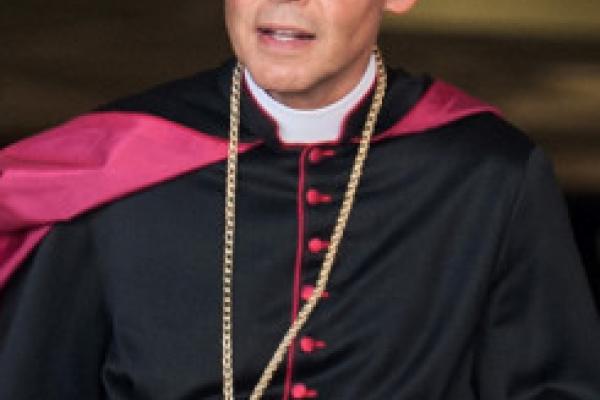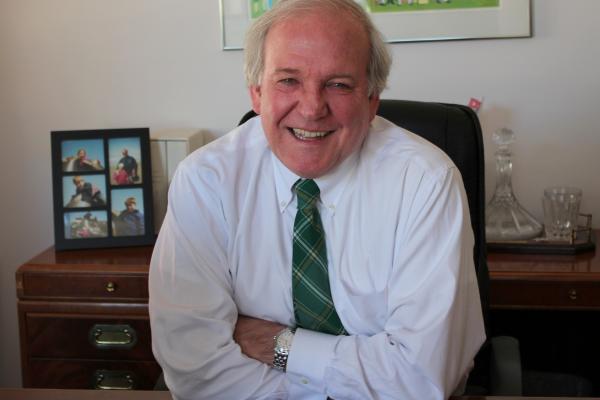Christian relief organization World Vision has reversed its decision after announcing this week that it will no longer define marriage as between a man and a woman in its employee conduct manual.
The earlier decision was a groundbreaking change for the Christian institution that came with heavy criticism from evangelicals. After its initial announcement, the Assemblies of God had urged its members to consider dropping support.
Ryan Reed tweeted on Wednesday (March 26), “My wife works for WV. In today’s staff meeting Stearns announced that so far 2000 kids dropped.”
World Vision’s child sponsorships are $35 a month, which means the organization could have lost at least $840,000 in revenue over the longterm.
About $567 million of World Vision’s $1 billion budget comes from private contributions, according to the 2012 annual report, according to Christianity Today.
“We’ve listened,” World Vision president Stearns told reporter, to supporters who were concerned about the conduct change in policy. “We believe we made a mistake. We’re asking them to forgive and understand our poor judgement in the original decision.”
The family of a little girl in western Virginia has removed her from her private Christian school after administrators said she did not appear feminine enough.
Sunnie Kahle, 8, likes autographed baseballs and hunting knives alongside stuffed animals and jewelry, according to CBS affiliate WDBJ.
“It’s fun,” Sunnie said.
Sometimes her schoolmates at Timberlake Christian School asked whether she was a boy or girl, Sunnie told the station.
The news that Pope Francis fired — or “accepted the resignation of” — the German churchman known as “Bishop Bling” because of his big-spending ways has touched off speculation among Catholics that other dismissals could be in the offing.
Here’s the answer in four words: Perhaps, but probably not.
Recent history shows why: Bishop Robert Finn of Kansas City, Mo., remains in office 18 months after his conviction – and $1.4 million spent on his defense — for failing to report a priest suspected of abuse. Los Angeles Cardinal Roger Mahony enjoys a high-profile retirement in spite of the disapproval of his own successor over Mahony’s abuse record. Similarly, Cardinal Bernard Law, formerly of Boston, is still living a gilded existence in Rome years after he was plucked from the U.S. amid the clergy abuse scandal.
“Public theology is the way in which faith professes action in the public square,” explained Mike McCurry.
This idea — that there is a connection between your spiritual faith and what you do in politics — is an underlying theme in McCurry’s journey from press secretary for former President Bill Clinton to joining the faculty at Wesley Theological Seminary in Washington, D.C., as professor of public theology.
I tend toward the “eat, drink, and be merry” life philosophy, popularized by the Bible, and also Dave Matthews Band. Growing up in a very large, very loud, very food-centric family in South Texas ingrained this in me, as we gathered many a Sunday around the table(s) to celebrate that month’s birthdays and talk politics, family businesses, and, mostly, the last Seinfeld episode. What you might call gluttony, I call Sabbath — and I’ll quote Scripture at you to prove my point.
So smug was I at my “breaking bread as Jesus did” epicurean lifestyle that I probably should be writing about pride instead. But a few weekends ago, while finishing up season two of House of Cards three days after it released — and also a bottle of Zinfandel — and taking eye-attention breaks to check my Facebook and Instagram feeds (that adorable photo of baby girl only garnered 64 likes?!), and to see how many steps my Fitbit recorded for the day (so much for that post-dinner Skinny Cow), I paused to reflect upon the concept of gluttony.
When does our reliance upon a constant stream of multi-channel entertainment and instant gratification become harmful?
As we quickly approach Holy Week in the Christian calendar, our attention turns increasingly to the passion and crucifixion of Jesus. According to the Gospel accounts, one of the last phrases that Jesus spoke while suffering on the cross is a recitation of the opening line of Psalm 22: “My God, My God, why have you forsaken me?”
Even Jesus, whom Christians hold to be the Son of God, experienced feeling forsaken by his Heavenly Father. And the words of the Psalmist go further, “My God, my God, why have you forsaken me? Why are you so far from helping me, from the words of my groaning? O my God, I cry by day, but you do not answer; and by night, but find no rest.”
As I reflect on the plight of the undocumented immigrant in the United States today, I wonder if the words of the Psalmist, echoed by Jesus on the cross, don’t hit a little too close to home.





